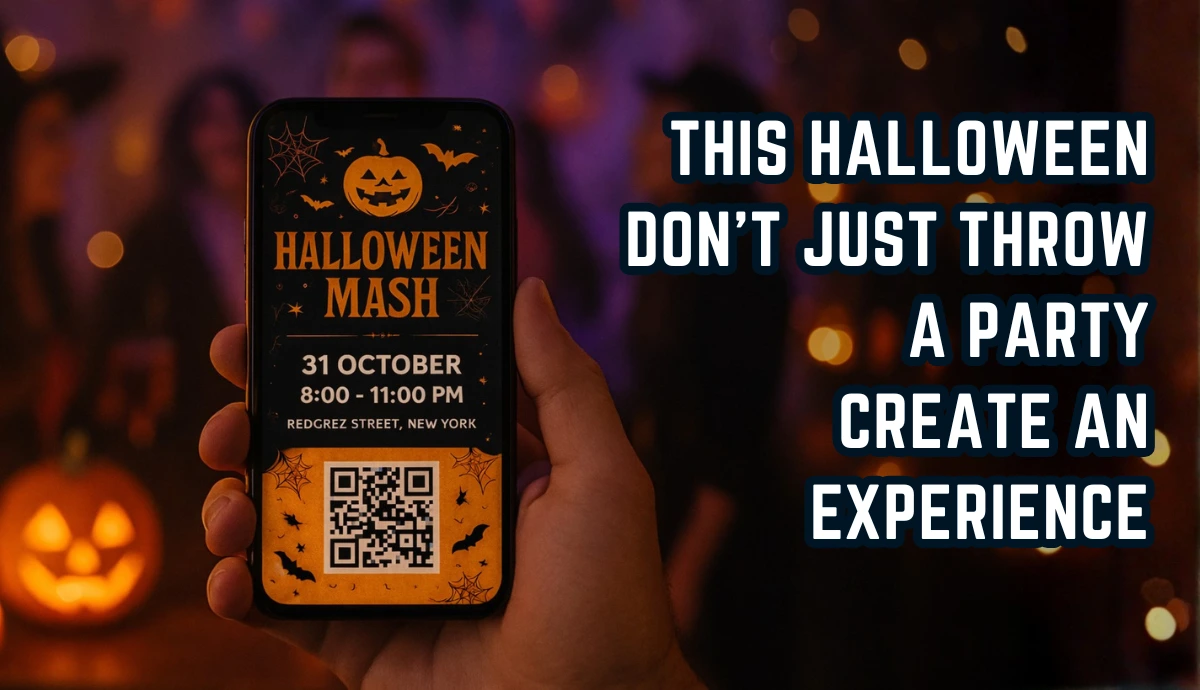A lot of effort goes into organizing an event. From booking vendors, and monitoring decorations to social media promotions, there are a lot of things going on at once. With so much on the plate, an error can easily slip off making a huge difference in your delivery.
That is why there are certain event planning skills that all event planners must have. These skills can either be inborn or developed with practice but they are necessary to pull off event management successfully.
In our article, we are going to discuss the top event planning skills you should develop to deliver excellent results every time.
A. Interpersonal skills

Event planners work with several people regularly when performing their jobs. They have to be effective conversationalists, excellent listeners, and empathetic with client needs while developing excellent interpersonal skills.
- People skills
This is the number one skill that all successful event planners have in common. Event management needs active involvement with a variety of stakeholders on an everyday basis. For you to be comfortable connecting with different people, you should be able to quickly resolve conflicts, be confident, and maintain your sense of humor wherever necessary. The different stakeholders you will be working with include
- C-level executives
- Government officials
- Vendors
- Sponsors
- Colleagues
- Customers
- Suppliers
- Supervisors
- Event staff
- Event attendees
- Communication skills
Communication has various forms including-
- Written communication is used to coordinate with vendors, such as booking venues or catering services. The message should be conveyed maintaining a courteous and professional tone.
- Verbal communication is used to connect with clients or vendors in person or over the phone.
- Nonverbal communication includes frequent interaction with other professionals and how they perceive your thoughts or feelings based on nonverbal cues, including body language, tone of voice, and gestures.
- Active listening is important to understand a client’s wishes. This may include taking notes, asking questions, and confirming specific requests or bookings.
- Negotiation skills
Negotiation skills are one of the core event planning skills to ensure vendor’s prices align with clients’ budgets. Additionally, it includes negotiating contract terms with clients, discussing budgets or timelines, and so on. This valuable life skill can help you gain confidence, get a fair deal, and improve your strategic planning. Other supporting skills include
- Building rapport
- Persuasion
- Influencing
- Conflict resolution
- Leadership skills
Leadership is a very important event-planning skill that can bring people together and motivate them to deliver their best. Effective leadership is all about building trust, delegation, and getting things done. If you are not a born leader, this skill can be developed over time with practice and guidance.
B. Productivity Skills

Productivity skills are crucial event planning skills that can enhance efficiency and performance.
- Organizational skills
Event planners have to work on multiple projects simultaneously with separate scheduled deliveries and setups. This means you have several deadlines to keep track of, so a smart move would be to rely on event planning checklists, templates, and event management platforms to manage everything efficiently.
On the other hand, poor organization can lead to low productivity, more procrastination, and possibly more stress. By brushing up your organizational skills, you will be able to create a healthy and productive work environment for yourself and your team. This can also contribute positively to goal setting, project management, and resource planning.
- Time management
Time management skills are vital to give attendees a positive experience. This means ensuring all events should begin at the scheduled time, speakers begin their presentations promptly and performances don’t overrun with each other.
Effective time management requires event managers to meet frequent and hard deadlines while working on the following-
- Systems thinking
- Process design
- Distraction management
- Boundary setting
- Prioritization skills
If you want to become a successful event planner, you should know the art of prioritizing tasks based on importance. With so many things on the plate, tackling each task at a time is the most efficient way of getting things done. Prioritizing does not necessarily mean rating tasks as important and unimportant, but doing the right thing at the right time.
To get started, you may consider creating a system that can be used throughout the entire portfolio of events you manage. For example, if you are hosting a conference, the ideal sequence of prioritization can be setting the date, booking the venue, followed by finding speakers and attractions, and finally reaching out to the sponsors.
- Adaptability and flexibility
The most talented event planners are highly adaptable to situations and comfortable with change. Event planners must be well-planned to face any changes regarding budget, location, or date changes. No matter what situation you are in, you must learn to stay solution-focused and immediately shift to problem-solving mode when things don’t go as planned.
- Creativity planning
The core of event management is creativity. If you are innovative, prospects will automatically get attracted to your event increasing the attendee count. To make your event stand out, you can even team up with creative partners, design artists, comedians, musicians, and other visual effects artists.
To develop your creative skills, allot separate space and time in your daily schedule to create memorable experiences at your events. Pushing boundaries can help you innovate new ways of doing things for your clients. This can be either a fun networking idea or a unique session format. To build your creative muscles, focus on experimenting, divergent thinking, and brainstorming.
C. Technical skills

Technical skills include knowledge and capabilities to perform specific tasks related to event planning. These skills help an event manager to coordinate work, solve problems, and communicate effectively while understanding the big picture.
- Tech Savviness
To conduct any event successfully, you have to familiarize yourself with various digital tools. Whether you are hosting a live stream, marketing your event digitally, or creating registration for sales- event tech is everywhere.
You don’t necessarily need to be an expert in handling all tools and event technology, but understanding key trends can help you go a long way. Some digital tools for virtual or hybrid events include Facebook Live, YouTube, Zoom, and many others.
The best way to keep learning is to stay open-minded, network with event professionals, and subscribe to industry news and trends which brings us to our next important skill.
- Research skills
Research skills are important to ensure event planners are up to date on all the latest event-related trends and news. Luckily, getting information is the easiest these days through a simple Google search. However, you should know how to filter out the useful information from a pile of data. Event planners who are good researchers are already informed of any last-minute event restrictions such as capacity limits, local policies, and government rules. This will help you to plan better and keep a backup plan ready.
- Budget management
Finances are a massive part of event planning logistics, so you need to be skilled at effective budgeting to manage your event successfully. Some important items to consider while budgeting
On-site costs
- Venue
- Event Staff
- Food and beverage
- Audio/visual and other tech
- Speakers and entertainment
- Transportation
- Security
- Event planner or on-site manager
Event marketing and promotion
- Graphic design
- Social media and paid advertising
- Printed marketing materials
- Affiliate and influencer fees
- Paid content marketing
Event management technology
- Event management platform
- Booking and ticketing fees
- Event website
- Event diagramming tool
- Mobile event app
- On-site check-in and registration
- Lead capture tools
- Data and analytics
- Virtual event technology
- Problem-solving skills
Event management requires fast thinking and problem-solving abilities due to its unpredictable nature. No matter how smartly you plan your event, something can always go wrong. Whether it’s changing the menu at the last minute, or reworking a keynote presentation, the key idea is to be resourceful and find creative solutions to the challenges that may arise.
- Detail oriented
Successful event planning is all about details. It enables you to create memorable experiences making significant differences with little things. Therefore, as an event planner, you have to pay close attention to all the major and minor aspects of the event- from entertainment and menu to the seating arrangements and decor.
A detail-oriented mindset will ensure that all the components of the event align with the vision and objectives of the clients. This includes conducting quality control checks, reviewing the contracts, and monitoring vendors efficiently to be able to deliver a flawless event.
D. Personal skills

Personal skills or self-management skills allow event planners to control and regulate their thoughts, behavior, and emotions effectively in different situations. With strong personal skills, you can set independent goals and do everything possible to achieve them.
- Empathy
As an event planner, you are going to work with hundreds of new people every year. As such, having a respectful understanding of what others are experiencing and being mindful of their feelings can help you build and maintain strong relationships with clients. Being empathetic will make you understand what clients truly expect from the event. The level of empathy varies from person to person, but you can make conscious efforts to build more empathy by being self-aware, using imagination, and active listening.
- Stress management
The demands and fast-paced nature of event planning and management can lead to extreme stress adversely affecting the way you function. This can also hamper logical thinking and rational decision-making. That is why it is crucial to manage stress effectively.
When you constantly worry about meeting deadlines or facing uncertainties, it restricts your ability to achieve goals. This can also impact your overall mental health. To de-stress yourself, you can-
- Surround yourself with lively high-spirited people
- Practice meditation daily
- Maintain a healthy diet
- Take proper rest and sleep
- Self-motivation
Motivation yourself will encourage you to achieve your goals even when it feels challenging. With so much work, uncertainty, and looming deadlines in event planning, you need to develop the determination to complete various tasks and achieve goals on time. Self-motivation can help you build trusting relationships with clients, and increase the chances of client retention. To practice motivation, you can-
- Plan and set goals
- Develop a reward system for yourself
- Practice positivity
- Come out of your comfort zone
- Dedication to client service
Event planners are no less than wish-granting machines. Your clients dream and you help them turn it into reality. The most important skill or rather a value here is having the dedication to make things happen exactly the way the clients want it. A dedicated approach towards client service will help the client to trust you and ease any anxieties they may face.
Wrapping up
Event planning skills are crucial to make any event successful. However, these skills can be enhanced to the next level with the support of event management software. It not only makes your work easier but can help you be more productive.
Ticket Generator is an event management platform that can help you build event registration pages, schedule events, manage ticket sales, and more. It can help you to
- Customize and create your registration page to reflect your brand essence
- Create automated workflows to manage attendees, sponsors, speakers, and exhibitors
- Keep all events in one platform, making it easier and super smooth to track event performance
- Easily distribute tickets to attendees via SMS and WhatsApp
- Secure check-ins with unique QR codes
Sign up to know more!






.gif)






